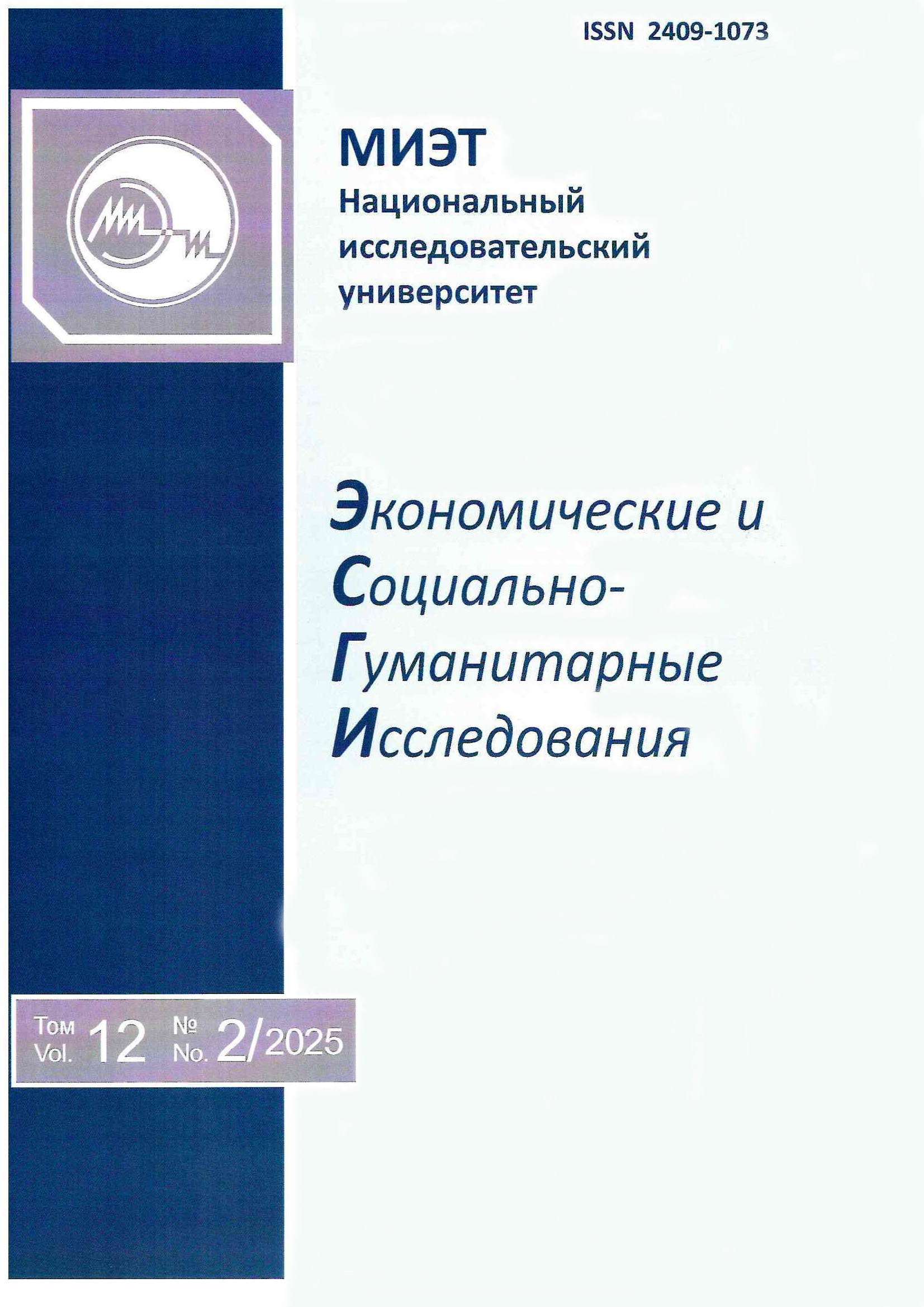Беларусь
УДК 165.0 Проблема познания в целом. Истина. Правильность. Заблуждение. Ложность
УДК 17.03 Направления и концепции в этике
УДК 004.8 Искусственный интеллект
Критически оценивается «новая этика» искусственного интеллекта, предложенная М. Габриэлем. Утверждается, что в отличие от интеллекта человека искусственный интеллект лишен нормативного измерения или, что эквивалентно, чувствительности к контексту. Автор показывает противоречие между точкой зрения М. Габриэля и реалистическим контекстуальным подходом к этике у Ж. Бенуа, и моральным реализмом Т. Уильямсона, согласно которым первичны не принципы, а моральное восприятие в контексте, парадигматические примеры морального знания. Сравниваются подходы к пониманию искусственного интеллекта М. Габриэля, Д. Андлера, Л. Флориди, С. Рассела. Доказывается целесообразность принципа умеренности Д. Андлера. Реалистическая концепция искусственного интеллекта (ИИ) противопоставляется идеалистической концепции.
искусственный интеллект, этика ИИ, Габриэль, моральный прогресс, автономия, контекст, нормативность, моральный реализм, принцип умеренности
1. Прись И. Е. «Искусственный интеллект и неоэкзистенциализм». Философия в XXI веке: направления и тенденции развития: материалы II Междунар. науч.-практ. конф. (Москва, Зеленоград — Красноярск, 12 апреля 2024): в 3 ч. Под общ. ред. Н. В. Даниелян. Ч. 2. М.: МИЭТ, 2024a. 159—169. EDN: https://elibrary.ru/FOARAA.
2. Прись И. Е. «Искусственный интеллект — не интеллект и никогда им не будет». Наука и инновации 9 (259) (2024b): 26—29. EDN: https://elibrary.ru/CDNTHD.
3. Прись И. Е. «Квантовоподобное моделирование и его философские основания». Философия науки 3 (102) (2024c): 109—129. https://doi.org/10.15372/PS20240307. EDN: https://elibrary.ru/VJUFIK.
4. Прись И. Е. «Контекстуальный моральный реализм». Сибирский философский журнал 21.4 (2023): 5—28. https://doi.org/10.25295/2541-7517-2023-21-4-5-28. EDN: https://elibrary.ru/MIEJMS.
5. Andler D. Intelligence artificielle, intelligence humaine: la double énigme. Paris: Gallimard, 2023. 432 p.
6. Andler D. “The Normativity of Context”. Philosophical Studies 100.3 (2000): 273—303. https://doi.org/10.1023/A:1018628709589
7. Brey P., Dainow B. “Ethics by Design for Artificial Intelligence”. AI and Ethics 4.4 (2024): 1265—1277. https://doi.org/10.1007/s43681-023-00330-4
8. Chakraborty A., Bhuyan N. “Can Artificial Intelligence Be a Kantian Moral Agent? On Moral Autonomy of AI System”. AI and Ethics 4 (2024): 325—331. https://doi.org/10.1007/s43681-023-00269-6
9. Chalmers D. “The Singularity: A Philosophical Analysis”. Journal of Consciousness Studies 17.9-10 (2010): 7—65.
10. Coeckelbergh M. AI Ethics. Cambridge, MA: The MIT Press, 2020. 248 p.
11. Evans R. “2 The Apperception Engine”. Kim H., Schönecker D., eds. Kant and Artificial Intelligence. Berlin: De Gruyter, 2022. 39—103. https://doi.org/10.1515/9783110706611-002
12. Floridi L. The Ethics of Artificial Intelligence: Principles, Challenges, and Opportunities. Oxford: Oxford Up, 2023. 272 p.
13. Gabriel M. Der Sinn des Denkens. Berlin: Ullstein, 2018. 368 S.
14. Gabriel M. Moralischer Fortschritt in dunklen Zeiten: Universale Werte für das 21. Jahrhundert. Berlin: Ullstein, 2020. 369 S.
15. Gudmunsen Z. “The Moral Decision Machine: A Challenge for Artificial Moral Agency Based on Moral Deference”. AI and Ethics 5 (2025): 1033—1045. https://doi.org/10.1007/s43681-024-00444-3
16. Huang L. T.-L., Papyshev G., Wong J. K. “Democratizing Value Alignment: From Authoritarian to Democratic”. AI and Ethics 5 (2025): 11—18. https://doi.org/10.1007/s43681-024-00624-1
17. Kim H., Schönecker D., eds. Kant and Artificial Intelligence. Berlin: De Gruyter, 2022. v, 290 p. https://doi.org/10.1515/9783110706611
18. Lindner F., Bentzen M. M. “A Formalization of Kant’s Second Formulation of the Categorical Imperative”. arXiv. Rev. 11 July 2019. Web. 15 May 2025. https://doi.org/10.48550/arXiv.1801.03160
19. McDonald F. J. “AI, Alignment, and the Categorical Imperative”. AI and Ethics 3 (2023): 337—344. https://doi.org/10.1007/s43681-022-00160-w
20. Perez‑Escobar J. A., Sarikaya D. “Philosophical Investigations into AI Alignment: A Wittgensteinian Framework”. Philosophy & Technology 37.3 (2024): 80. https://doi.org/10.1007/s13347-024-00761-9
21. Powers T. M. “Prospects for a Kantian Machine”. IEEE Intelligent System 21.4 (2006): 46—51. https://doi.org/10.1109/MIS.2006.77
22. Russell S. Human Compatible. Artificial Intelligence and the Problem of Control. New York: Penguin Books, 2020. 352 p.
23. Schlicht T. “1 Minds, Brains, and Deep Learning: The Development of Cognitive Science through the Lens of Kant’s Approach to Cognition”. Kim H., Schönecker D., eds. Kant and Artificial Intelligence. Berlin: De Gruyter, 2022. 3—38. https://doi.org/10.1515/9783110706611-001
24. Shanker S. G. Wittgenstein’s Remarks on the Foundations of AI. London: Routledge, 1998. xvi, 280 p.
25. Simion M., Kelp Ch. “Trustworthy Artificial Intelligence”. Asian Journal of Philosophy 2 (2023): 8. https://doi.org/10.1007/s44204-023-00063-5
26. Williamson T. “Unexceptional Moral Knowledge”. Journal of Chinese Philosophy 49.4 (2022): 405—415. https://doi.org/10.1163/15406253-12340082









